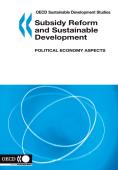
This report presents and analyses policies, programmes and approaches for the development, market introduction and diffusion of green cars. It reviews government policies (including public procurement and regulations and standards) in a number of OECD countries as well as a selection of non-OECD economies. The report attempts to provide: i) a better understanding of the growing market for green vehicles; ii) new analytical instruments to identify policies and approaches that could be designed and put in place, notably with the aim of fostering the uptake of green cars; and iii) to the extent possible, insights into the efficiency and effectiveness of existing policies, as well as guidance on how to assess the impact of future measures.
This toolkit focuses on inclusive green growth—growth that not only helps green economies, but also helps move towards sustainable development by ensuring environmental sustainability contributes to, or at least does not come at the expense of, social progress. While there is good reason to think that improved environmental performance will benefit the poorest and most vulnerable, green growth policies must be carefully designed to maximise benefits and minimise costs for them, particularly during the transition. There is thus a critical need for policy design that also ensures that skills are upgraded and that jobs are decent, that vulnerable groups are not marginalised or left behind, and that revenues from fiscal reforms are also channeled into broader social protection and health measures.
A number of the tools that will be mobilised to implement inclusive green growth policies are "classic" public management tools, but this document focuses only on the most relevant instruments vis-à-vis green growth in developing countries, as these instruments are widely known and implemented the world over. What this toolkit aims for instead is to provide policy-makers with:
This book outlines the Republic of Korea’s goals for green growth, including its green growth strategy, legislation and plans. Commercialization of green technologies is highlighted as a key platform for economic growth and job creation. The book was initially published in January 2011 in Korean under the title, “The Right Way to Know about Green Growth” with the support of the Republic of Korea Presidential Committee on Green Growth.
The world is increasingly faced with the challenges stemming from the need to sustain an expanding global population while simultaneously addressing the environmental pressures that could threaten our ability to accomplish this. Green growth has emerged as a strategy to balance the historically divergent priorities of achieving economic growth and social development without putting at risk the environmental systems and natural capital we rely so heavily upon. This approach emphasizes the environmental and economic gains achieved by reducing inefficiencies in the management of resources and the stimulation of new sources of activity through innovation and green market growth.
